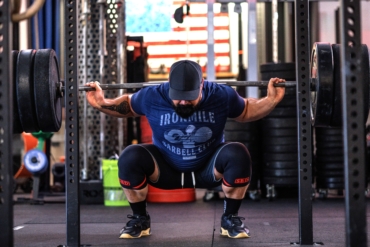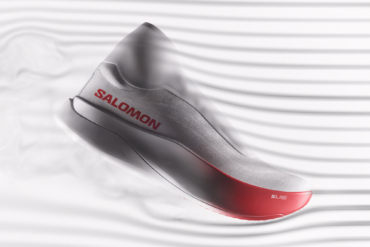Do you want to train for your first marathon but have no idea where to start? Running coach Neely Gracey offers some tips and guidelines for runners looking to tackle their first 26.2.
Completing a marathon is a benchmark goal for many runners. This distance is certainly challenging, but with the right training, it’s doable for millions of people every year. However, for many runners looking to take on their first marathon, it can be hard to know where to start.
We talked with running coach Neely Gracey, who is also a professional runner based in Boulder, Colorado. Gracey has represented Team USA in five international competitions. She offered several tips on how to train for your first marathon.
Here, we discuss if you’re ready to train for a marathon, how long that process generally takes, and what gear you’ll need, as well as answer several other questions you may have before running your first marathon.
Am I Ready to Train for a Marathon?
It’s best to not jump from zero running to training for a marathon. Your body will need time to adjust to a heightened exercise routine as you gradually build both aerobic fitness and physical strength. For some runners, this often means years of consistent running before being ready to run 26.2 miles.
“Typically, a runner would do several 5Ks, 10Ks, and even a half-marathon before signing up for a full marathon,” said Gracey. However, it’s not just the races you’ve run that determine your readiness, but also your current level of fitness — even if you never run a race in your life.
“If you can run up to 10 miles for a long run, and run consistently three to five times a week, then you could be ready to sign up for a marathon,” said Gracey.
If you have this base level experience in distance running, then a marathon is a great next goal to set.
Before you undertake any new training regimen or up the intensity of your running, talk with your doctor to be sure you’re ready.
How Long Does It Take to Train for a Marathon?
There’s no hard-and-fast answer to this question. A lot will depend on your prior running experience and your current level of fitness when you start your training program. That being said, most online marathon training plans schedule between 12 and 20 weeks to complete your marathon buildup.
The more time you have, though, the better. Keep in mind that you may get sick or have life issues come up during your training period, which can disrupt your weekly goals. And if you’re a beginning runner, you may be more susceptible to injuries, which could also slow you down.
“Focus on systematic training, slowly building up volume over time,” said Gracey.
Ideally, you should plan on spending at least 16 to 20 weeks training — up to 24 weeks if you have the time.
When training, most plans have you building up to a long run of 18-20 miles a couple of weeks before your race. A training week might look something like this one that Neely recommends:
- Monday: Easy run (3-6 miles)
- Tuesday: Speed workout (5-10 miles total)
- Wednesday: Off, cross-training, or easy run depending on the athlete
- Thursday: Strength workout (5-10 miles total)
- Friday: Off, cross-training, or easy run depending on the athlete
- Saturday: Long run (8-20 miles depending on the athlete and where they are in their training progression)
- Sunday: Rest day
Speed workouts include hill repeats, track workouts, or intervals. These are designed to build up your cardiovascular fitness. The strength workouts will be something like tempos, hilly runs, or mile repeats, designed to help build your endurance and strength.
There are a couple of different ways to structure your runs. First, you can run for a certain distance, like when you work up to a 16-, 18-, or 20-mile run. Those runs build your endurance and get you closer to your goal of completing 26.2 miles.
Another way to train is to run for a certain length of time, such as 30 minutes, as opposed to aiming for a specific number of miles. This approach often allows you to better focus on your effort with less worry about hitting a certain daily mileage.
Another thing to focus on during your training is to pay attention to how much effort you’re expending. An easy pace will allow you to speak in full sentences with little trouble. At a medium pace, your breathing should still be under control, but it would be difficult to hold a conversation. A hard pace will be about 90% of your maximum speed.
Different training days will have you running at different levels of intensity so you can recover or push yourself as needed. In the weeks leading up to your race, you’ll start tapering. You’ll run less and at an easier pace so you’re energized and ready for race day.
Some people find it helpful to train with a group rather than run alone. Having a running buddy (or a couple!) can motivate you to head outside on days you’d rather watch TV and can keep you from becoming too bored on long runs.
Similarly, some runners are happy to choose an online program and train on their own, while others find hiring a running coach helps them with accountability and personalizing a program to fit their needs.
Give yourself plenty of time to meet your training goals, find what methods work best for you, and you should be good to go!
What Gear Do I Need When Training?
Although running requires less gear than some other sports, you’ll want a few essentials.
- Running shoes. Your shoes are obviously the most important piece of gear — you’re going to cover some serious miles in them. Having a comfortable go-to pair of running shoes will make all the difference when you’re pounding the pavement. Check out our recommendations for the best running shoes for men and the best running shoes for women.
- Fuel. When it comes to food and hydration options, you have a wide array to choose from. It’s important to experiment during training and figure out what works best for you. A couple of places to start are Skratch Labs hydration mix, CLIF SHOT BLOKS, and Honey Stinger Waffles.
- Watch. You could pull out your phone to constantly check your time or distance, but watches are so much easier. There are many, like Garmin’s line of GPS running watches, that provide many features that runners find helpful, such as maps, GPS tracking, pace monitoring, a heart-rate monitor, and more. If you want a less expensive option with fewer high-tech features, Timex offers a variety of digital watches that should cover the basics.
- Hydration pack. Even if you have the perfect hydration option, you’ll need a way to carry it, especially for your long run to practice hydrating while on the move. We rounded up five of the best running hydration packs on the market so you can see what’s out there.
- Foam roller. Taking care of your muscles when you aren’t running is equally important as putting in the miles. A foam roller is a great way to soothe tight muscles, increase mobility, and aid recovery.
- Clothing. Although you can run in cutoff shorts and a tank top, that doesn’t mean you won’t regret it halfway through your run. Here are some of our top running short picks for men and women, as well as our top running shirts for women.
- Socks. Socks deserve a category of their own when it comes to running. After all, you’ll be on your feet for several hours at a time. You’ll want a moisture-wicking sock to help prevent hot spots and blisters. Here are some running socks for men and women to get you started.
What Else Should I Know When Training for a Marathon?
How Should I Pick My First Marathon?
Once you start looking, you might feel overwhelmed by the number of marathons out there. Here are some things you will want to consider when choosing which marathon is the best fit for you:
- What time of year does it take place? You may not want your first marathon to take place in 90-degree heat — or during a blizzard.
- What’s the location? It may be nice to run somewhere scenic or visit a town you’ve always wanted to explore.
- What’s the altitude? If you’re traveling to a higher altitude than you’re used to running at, this will affect your performance. Alternatively, if you train at high altitude, you may want to pick a sea-level marathon.
- What’s the course elevation profile? If you train on hills, you’re probably fine with a hilly course.
- Is this race supported, meaning you’ll have regular refreshments and water stations along the way? Having a place to refill your water or grab nutrition halfway through the race may take some of the stress out of prepping.
- Is there a cause you would like to support? If you’re training for a particular charity’s marathon, that cause may give you extra motivation.
And, of course, don’t sign up for a marathon that’s scheduled for next week! Make sure you have plenty of time to train before race day.
Can I Listen to Music While Running a Marathon?
Listening to music can be a great way to make a run go by faster. However, having earbuds in can also be a safety risk, because you may not hear what’s going on around you.
Organized marathons have different rules regarding music, so make sure to check before popping in your earbuds on race day.

What Is ‘Hitting the Wall’ in a Marathon?
There comes a point for most people during long-distance activities when they will “bonk” or “hit the wall.” This is when the stored glycogen in your muscles runs low and your body tries to stop you from expending more energy. You’ll start feeling sluggish, and it’ll be a struggle to continue.
You can avoid hitting the wall — or at least get through it — by eating and hydrating correctly leading up to and during your race. To ensure you’re able to properly fuel yourself on race day, you should practice your nutrition and hydration strategies during your long runs leading up to the marathon.
What Should I Eat and Drink During a Marathon?
Many (though not all) organized marathons will provide hydration and fuel along the way. However, there’s no guarantee the provided refreshments will work for you.
Remember: Don’t try anything new on the day of the race. In your long-distance training runs, you can experiment with different food and drink options to figure out what your stomach can handle. Just have it dialed by race day.
Get Started!
If you’re ready to take the next step in your running goals, training for a marathon is an excellent plan. Be sure to give yourself plenty of time to complete a training plan, get the right gear, establish an appropriate base to begin training, and go for it!











